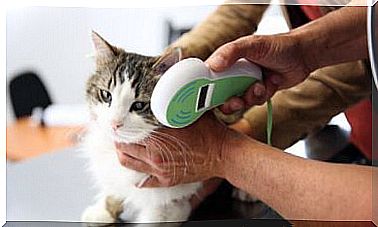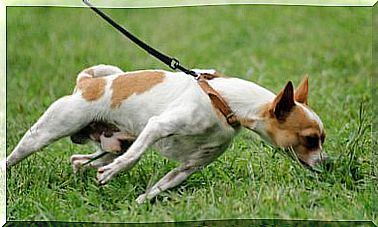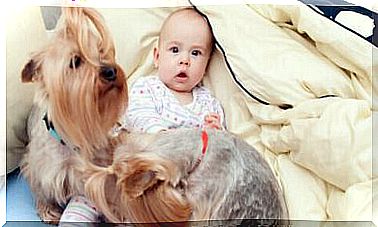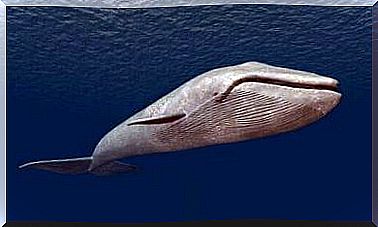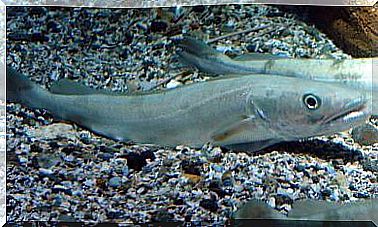Which Animals Can Suffer From Anorexia?
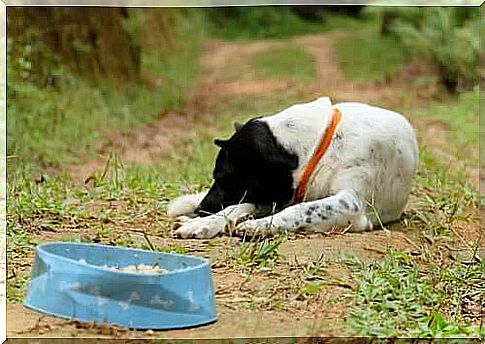
“Anorexia” is a term used to describe the situation in which a pet loses its appetite. In these cases, it is possible that the animal does not want or can not eat.
Before going on to deepen the subject, it is necessary to clarify that “hunger” and “appetite” are not synonymous. On the one hand, hunger has a physiological origin, which arises from the body’s need to feed itself. Appetite, on the other hand, has a psychological connotation, because it depends on memory and association.
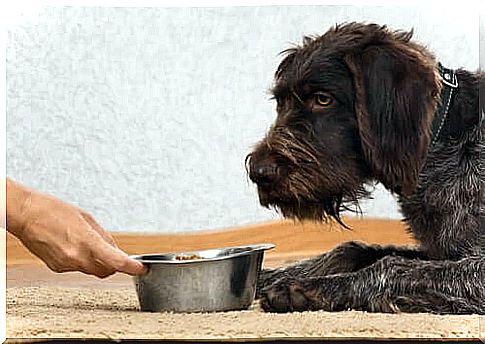
Possible causes of lack of appetite in animals
There are many possible causes of anorexia. The most common are the following:
- Cancer
- Presence of internal parasites
- Infection of the tongue
- Inflammatory ulcers
- Dental diseases
- Enlarged amygdala
- Presence of a foreign body
- Infections that cause fever
- Any disease affecting the stomach or intestines
Other cases in which anorexia can occur:
- Stress from particularly loud noises, such as that accompanying fireworks, can cause anorexia.
- Territorial animals, such as cats, may stop eating when they feel intimidated by the presence of another pet in the home.
- Pets that suffer from arthritis, those who are in the postoperative phase, or those who suffer from body pain may also have anorexia.
How does the vet behave?
Based on the symptoms presented by your pet, the vet will choose which are the most appropriate measures to take. However, you can expect it to act in the following ways:
- Most vets will start by asking you some basic questions to understand the problem. When did you first notice your decreased appetite or anorexia? How is your pet’s normal appetite?
- Next, he will carry out a physical assessment of the animal.
- If he deems it appropriate, he will prescribe some laboratory tests. Blood, stool, or urine tests can be helpful in clarifying any suspicions of underlying disease.
- He will prescribe the execution of x-rays. In these cases, radiographs may be useful, especially when orthopedic pain, cancer, or gastrointestinal disorders are suspected.
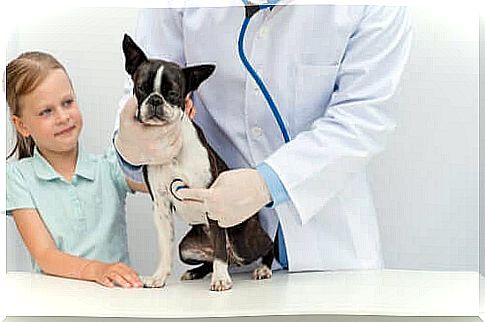
Anorexia in dogs
A temporary loss of appetite in your dog is not something that should immediately cause your concern. Just like us, even dogs are sometimes not hungry.
Sometimes, a stressful situation or an upset stomach can be the triggers. Often, however, these problems are solved in one day. If, on the other hand, more than 48 hours pass and the dog continues to refuse to eat, it will be necessary to take him to the vet immediately.
The main concern arises when a dog that generally demonstrates considerable enthusiasm for food suddenly loses interest. This sudden loss of appetite is a sign that something is wrong.
Cats can also suffer from loss of appetite
Cats like to follow their own routine and any changes that affect them can make them lose their appetite. A trip, a move or even the arrival of a baby or a new pet in the family can be a source of stress. On many occasions, cats react to stress by refusing to eat.
In any case, it is important to keep in mind, in case your cat does not eat, that it could be the result of some disease. Infections, pancreatitis, kidney flu, cancer, and intestinal problems can lead a cat to stop eating.
Anorexia is an atypical phenomenon in snakes
With the exception of some female snakes just prior to spawning and snakes undergoing scheduled hibernation, it is not a normal phenomenon for snakes in captivity to refuse to eat over a period of one or two months. Many temperate snakes tend to reduce their feeding rate in the fall as daylight hours decrease.
Often, snakes temporarily stop eating when they are about to shed their skin. It must be emphasized that, right before moulting, snakes cannot see very well and can get irritated easily. However, once they have shed their skin, their appetite returns to normal.
However, if anorexia is allowed to continue for more than a few weeks, it is possible that the animal is predisposed to suffering an infection. Anorexia is a sign that a snake does not feel safe enough in its cage.
Anorexia in rabbits can be serious
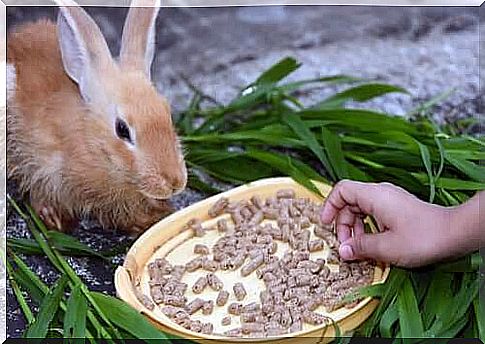
Generally, rabbits want to chew and eat whatever they find within their reach. However, when they suddenly become apathetic and show no interest in food, we may be faced with an emergency situation.
That a dog, a cat or another pet misses a meal shouldn’t be a cause for alarm. When a rabbit does, there may be a problem that needs attention as soon as possible.
The most common reason for loss of appetite in rabbits is a problem called ‘gastrointestinal stasis’. It occurs when peristalsis (the intestinal contractions that push food through the gastrointestinal tract) slows or stops. In rabbits, this phenomenon is extremely dangerous and can result in death if not treated properly.
Final note
As you can see, there are animals that can suffer from anorexia at certain times, for different causes. For this reason, it is important that you inform yourself well, based on the pet you have, and that you know when it is time to go to the vet for an immediate check.

